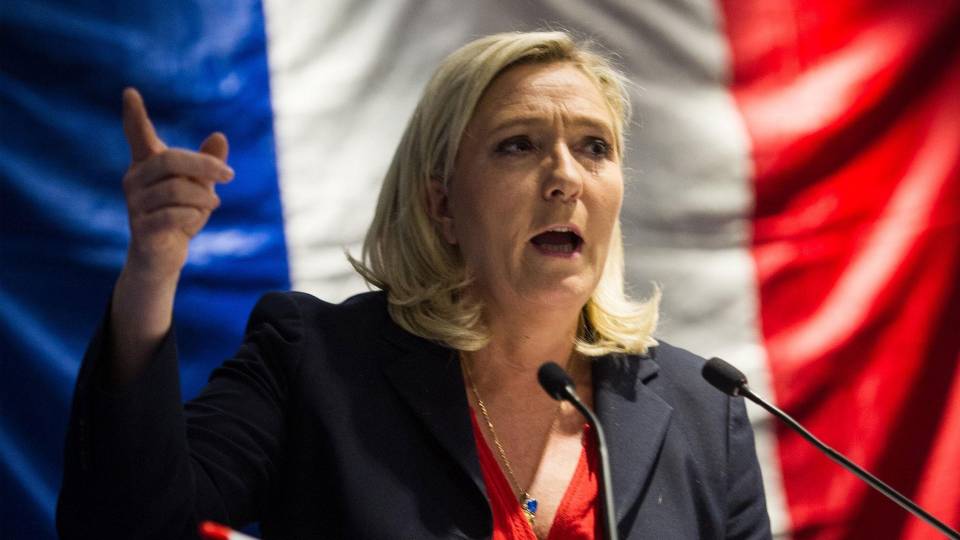‘She WON’T win!’ Juncker refuses to consider Le Pen could be next French president
Jean-Claude Juncker, the man who claimed Brexit would not happen, has predicted Marine Le Pen will not become the next French president.
The European Commission president refused to entertain the possibility of Ms Le Pen winning the French election during a thorny exchange on the future of the European Union.
It is not the first time the chief Eurocrat has weighed in with his prediction of an election result.
Just over 12 months ago Mr Juncker said he was confident Britain would not vote to leave the EU.
Days before the historic referendum, in which 17 million people voted to leave the crumbling bloc, Mr Juncker told a German newspaper: “Brexit is not a question which arises, it’s not desired by the British.”

Mr Juncker refused to answer questions about the impact a Le Pen victory would have on the struggling EU, which is riven with division and facing a number of crunch elections in the next year.
Asked about the future of the EU, if Ms Le Pen wins the election, Mr Juncker said: “This is a hypothesis that I do not think will come to pass.
“The hypothesis that Madame Le Pen will be the future president of the French Republic. She will not be.”
Pressed on the fact that the euro elite had not predicted Brexit either, he snapped: “You must not confuse people or countries. Brexit had other, profound causes which the unlikely election of Madame Le Pen in France does not. We must not confound the two, I think that is dangerous.
Asked again if the EU can survive if the National Front leader becomes president, Mr Juncker said: “It is a question we should not even be asking.”
The far-right leader is expected to go up against conservative candidate Francois Fillon - a former French prime minister - in the final round of the battle to become the next president next March.
Polls indicate she will lose that contest, with moderate voters rallying to former prime minister Mr Fillon in a bid to keep the FN out of power, however in recent months such surveys have proved heavily inaccurate and have severely underestimated support for radical candidates.
During the ill-tempered interview with Euronews the EU Commission president also delivered a chilly assessment of new US President Donald Trump, moaning that Nigel Farage was the only European to have met the billionaire businessman.
And he insisted that it was not his intention to punish Britain in the upcoming talks over Brexit, but stuck to the EU’s “red line” that the UK must accept free movement to stay in the single market.
Mr Juncker also dismissed the threat from the anti-EU party Alternative fur Deutschland, saying that neither the French nor German elections scheduled for next year “threaten the future of Europe” - although he did admit the upcoming Italian referendum is a major headache.
And asked about the future of EU-US relations after the election of Republican Mr Trump, who backed Brexit, the eurocrat offered the less than reassuring response: “Relations between the US and Europe will survive.”
He then added: “I don’t know him. Few Europeans have met him, apart from Nigel Farage.”
Finally Mr Juncker was quizzed about his approach to the upcoming Brexit talks, and was asked whether or not it was right that EU member states were looking to “punish” Britain for leaving.
He replied: “We must not come at this in the spirit of revenge. We must sort out the problems this has caused for the UK and for Europeans.
“We will make sure relations between the British Isles and the continent remain harmonious, all the while knowing that the British cannot have the same rights and advantages as citizens of the European Union.”
But on the thorny issue of freedom of movement he was unrelenting, adding: “If the UK, with its export industry and financial services wants to fully benefit from the advantages of the single market, if they want direct access to the internal market, our British friends must respect the founding and driving principles of the internal market.
“It is unimaginable that there could be access to the benefits of the single market, if, for example, the principle of the free movement of workers is not respected. That won’t work.”






















